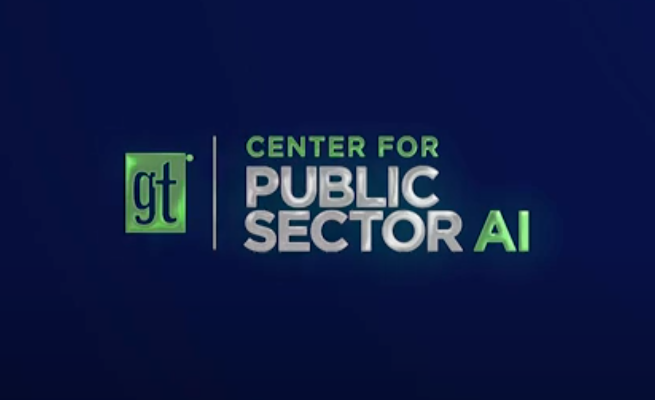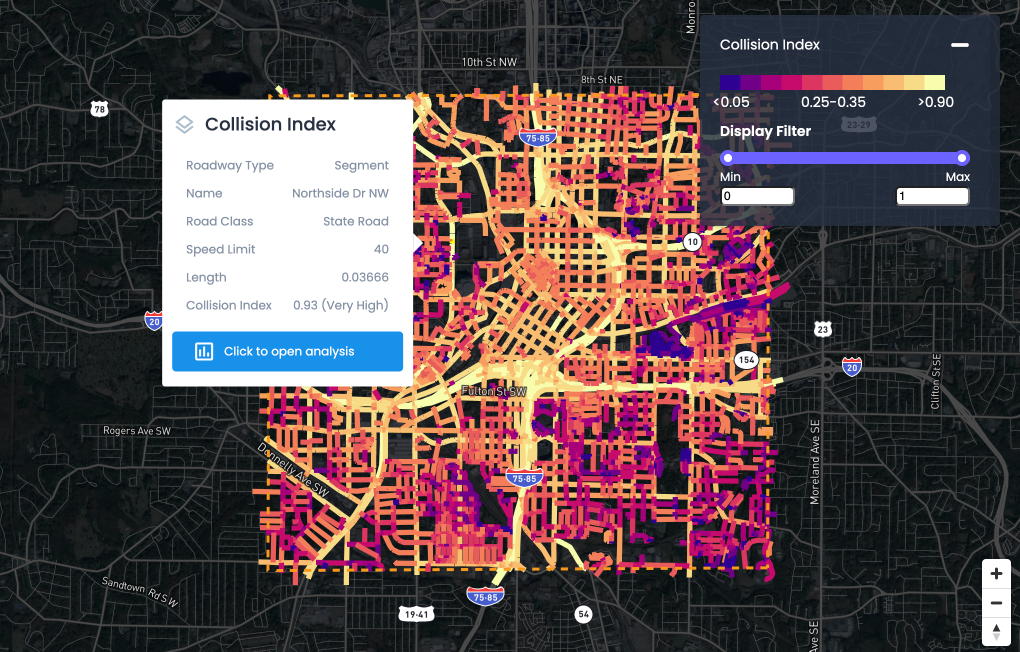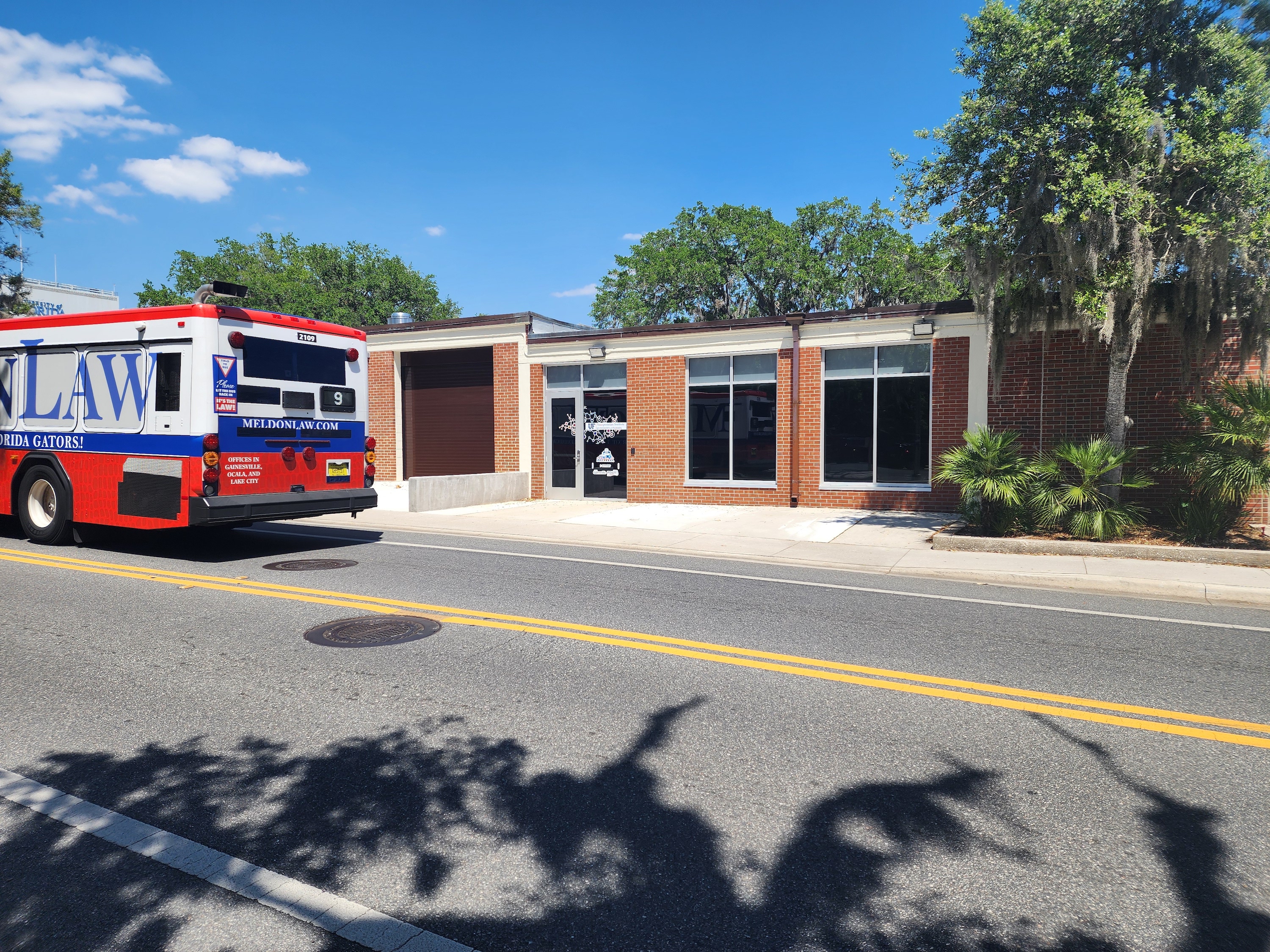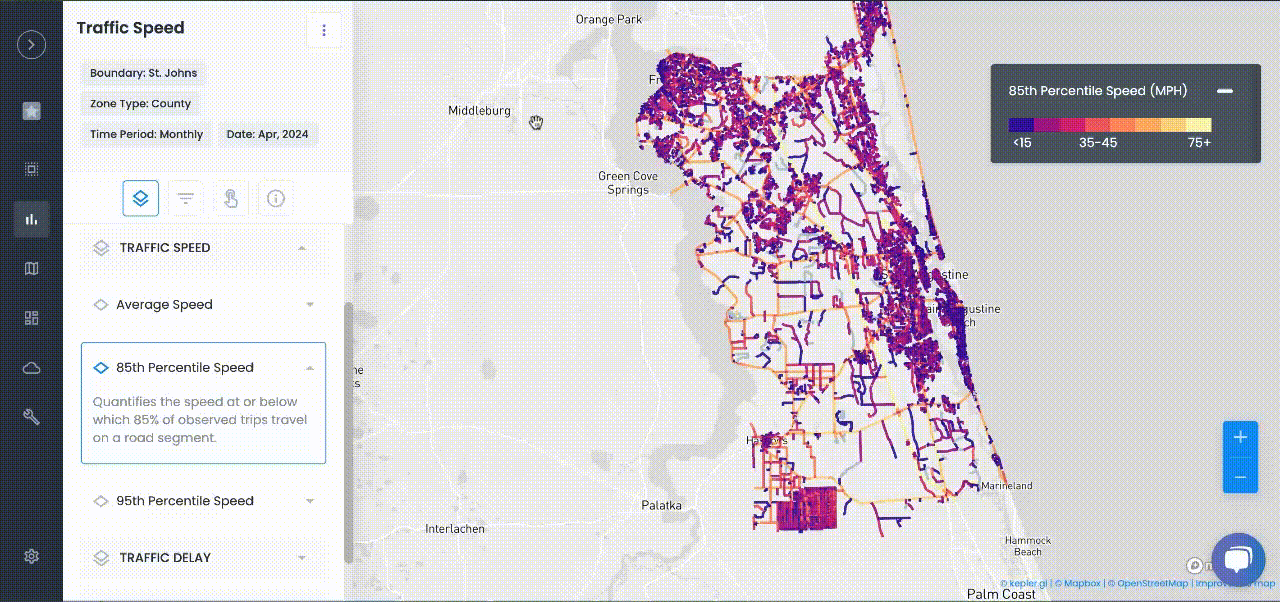
Articles
Sustainable Transportation and the Impact of Data-Driven Planning
Sustainable transportation starts with smart data and can impact everything from quality of life to efficient land use.
Sustainable transportation starts with smart data and can impact everything from quality of life to efficient land use.
Transportation is one of the biggest individual sectors with the greatest climate impact.
Since most transportation around the world is accomplished with an internal combustion engine of some sort, this is probably not too surprising. It’s not just cars, either — trucks, freight trains, container ships and aircraft are all powered by burning fuel.
All the world’s trade, and much of its mobility, is based on the engine.
Making transportation sustainable is a huge challenge, not least because reducing tailpipe emissions is only the beginning.
Speed and efficiency
Generally speaking, there are two considerations for “good” transportation: speed, or throughput, and efficiency.
A private jet is probably just about the fastest anything is transported regularly these days, but they mostly fly a handful of people (they have also been known to transport organs for transplant and even surgical teams).
On the opposite end of the spectrum, the big container ships that transport everything but oil and gas rarely exceed 30 mph.
In addition to emissions, one of the big considerations for transportation is geometry — how much space the transportation infrastructure takes up.
While it can move people relatively quickly, highway infrastructure takes up a huge amount of space — a popular photo on the internet demonstrates how an American interchange takes up more land than the historic center of Florence.
Airports also take up a lot of space relative to the number of people moved.
Given this expanse, sustainability of this doesn’t matter whether the vehicles are electric or not.
Obstacles to sustainable transportation
In the United States, one of the biggest obstacles to sustainable transportation is that the deck is stacked in favor of personal automobiles.
Things like parking requirements, anti-jaywalking laws, a failure to build sidewalks, low gas taxes and highways that are usually free to access all help make driving easier than it might otherwise be.
Many of these conditions are so baked into American society people see an attack on their way of life when changing them are suggested.
But reducing car usage, by carpooling, supporting public transit, biking and walking, is a major component of more sustainable transportation.
Driving efficient land use
It all leads into land use.
Poor land use inflates distances between destinations, consumes valuable land, and costs cities dearly in tax revenue and activity.
It also inflates the cost of infrastructure to serve what gets built on the land.
In transportation terms, this means that you have to drive farther, use more gas, and drive more to keep the road paved. This costs local governments more money.
In some parts of the United States, this takes on truly fantastic proportions, where gigantic roads connect the twisting cul-de-sacs of subdivisions to shopping centers with more parking than they will ever need. There's so much parking, the roads are so wide, and the subdivision is so spread out that if you got rid of all the parking and the huge roads and put all the homes and businesses on a grid of streets with just one lane in each direction — like a traditional small town — no one would have to walk more than 20 minutes to get to the store.
Electric vehicles cannot fix transportation’s problem with land use. Smart development, or lack thereof, is the primary thing keeping transportation unsustainable.
Building walkable neighborhoods isn’t about making everyone live in apartments, or even about taking cars away.
It’s about creating the option of not needing a car to get around. It’s about realizing every car in the state does not need to use the same McDonald’s parking lot at the same time.
America won’t change overnight, but by utilizing data for data-driven decisions planners can make small changes with big impacts.
Learn more about how Urban SDK can help your organization make informed decisions using critical data. Contact our team here.

NEWS
Recent Announcements
See how public sector leaders succeed with Urban SDK.

Company News
Urban SDK Joins Government Technology’s AI Council to Help Shape the Future of AI in the Public Sector
We’re proud to announce that Urban SDK has officially joined the AI Council, part of Government Technology’s Center for Public Sector AI

Company News
Collision Index: Proactive Traffic Safety Powered by AI
Communities now have another layer of road safety thanks to Urban SDK’s Collision Index

Customer Stories
University of Florida Transportation Institute Partners with Urban SDK to Expand I-STREET Program
Urban SDK and the University of Florida have partnered to expand the university's I-STREET Program
WEBINAR
Identify speeding and proactively enforce issues
See just how quick and easy it is to identify speeding, address complaints, and deploy officers.
